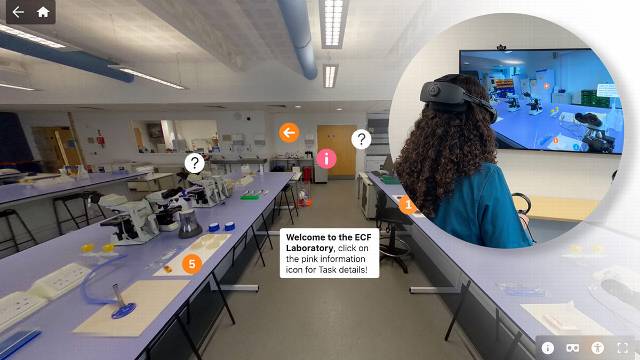
With an increasing emphasis being placed upon sustainability and low cost products, researchers and students on campus are discovering the best ways of engineering technology with a low price. We spoke to James Lowenberg-DeBoer, Professor of Agri-Tech Economics, about the different projects happening across campus as well as his own research with the British Council in Thailand.
James advises postgraduate students on their projects, working with them to find an elegant solution to their posed thesis problem. With a specialism in new technology in agriculture, he is knowledgeable on great technology on a reasonable budget. Students have reached out with a variety of different projects, with James explaining how some are "researching farmland markets in Uruguay while others are looking at the economics of agricultural robotics in Osnabrück, Germany." This international reach is great for creating a network of fellow researchers, drawing together ideas to discover solutions.
However, agri-economics is still present on campus. James offers undergraduate lectures on the adoption of precision agriculture, talking about the when and why of technology. He said, "Most people think that precision agriculture is somewhere else, where they are adopting different technology. But if you look at the data you get a different idea - the UK is making huge strides."
He also talks to students about the impact of technology on farmland prices, challenging preconceptions by asking, "what if you change technology and you can grow a crop where before you couldn’t? Or what if you can produce a product that makes land more valuable?" The economics of land impacts all parts of agriculture and James' lectures highlight this fact.
While the students are busy at work, James is working on his own research project to automate rubber tapping in Thailand. Labour to tap rubber trees is difficult to come by especially as the early mornings and possible snakes are not a great incentive. James comments that there is "also a lack of education, the people don't know how to tap and thus trees begin to die". To counteract this, James is collaborating on technology to make this an automatic process. Due to the fact smallholders are generally around two to three acres in the area, James and his team are working on a way to make rubber tapping affordable while profitable in consideration of the social and economic circumstances. James hopes to make rubber tapping sustainable and affordable.
With a vast amount of research revolving around technology and its economics, you can undertake your own research project here with us at Harper Adams University. Discover more on postgraduate degrees course page here.
 Blog: Veterinary Medicine students step into immersive 360° laboratory
At Harper & Keele Veterinary School, students are stepping beyond the traditional microbiology bench and into an immersive 360° labo …
Posted
Yesterday
Blog: Veterinary Medicine students step into immersive 360° laboratory
At Harper & Keele Veterinary School, students are stepping beyond the traditional microbiology bench and into an immersive 360° labo …
Posted
Yesterday





